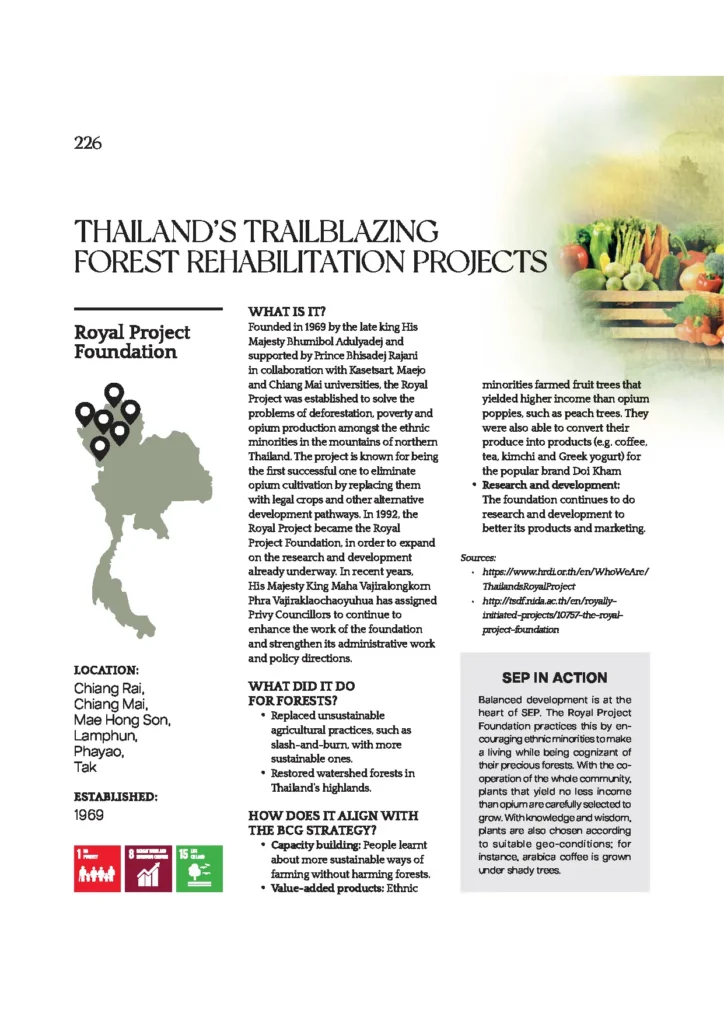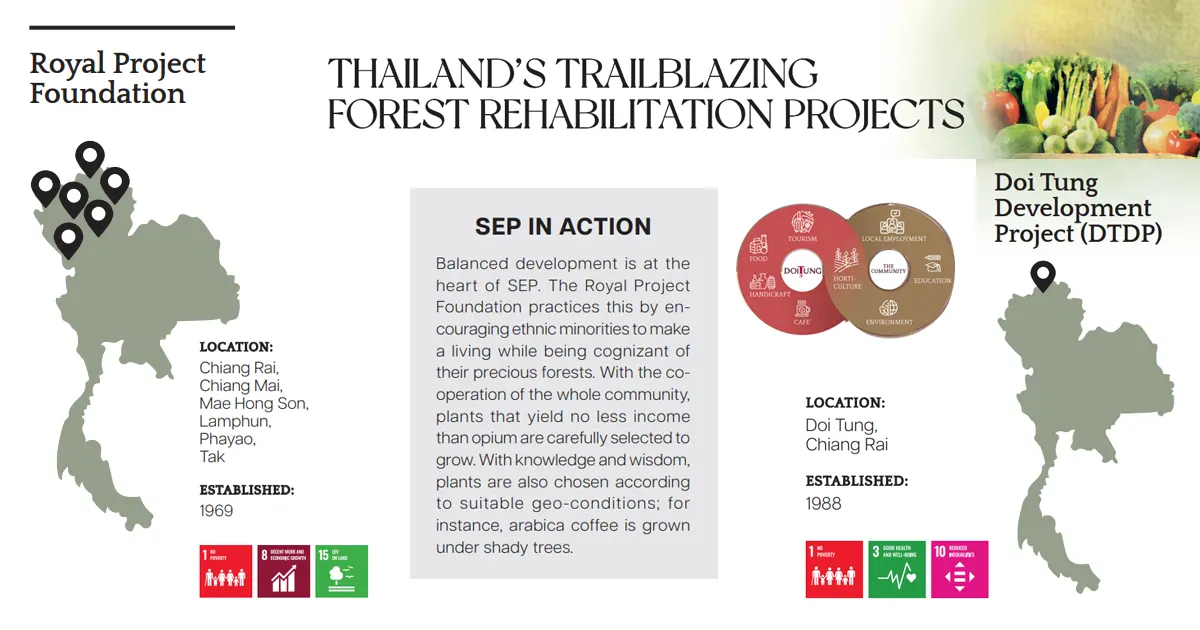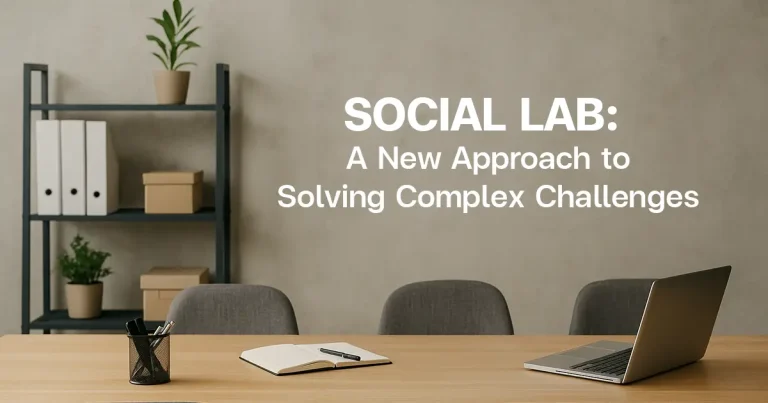Royal Project Foundation
LOCATION: Chiang Rai, Chiang Mai, Mae Hong Son, Lamphun, Phayao, Tak
ESTABLISHED: 1969
WHAT IS IT?
Founded in 1969 by the late king His Majesty Bhumibol Adulyadej and supported by Prince Bhisadej Rajani in collaboration with Kasetsart, Maejo and Chiang Mai universities, the Royal Project was established to solve the problems of deforestation, poverty and opium production amongst the ethnic minorities in the mountains of northern Thailand. The project is known for being the first successful one to eliminate opium cultivation by replacing them with legal crops and other alternative development pathways. In 1992, the Royal Project became the Royal Project Foundation, in order to expand on the research and development already underway. In recent years, His Majesty King Maha Vajiralongkorn Phra Vajiraklaochaoyuhua has assigned Privy Councillors to continue to enhance the work of the foundation and strengthen its administrative work and policy directions.
Doi Tung Development Project (DTDP)
LOCATION: Doi Tung, Chiang Rai
ESTABLISHED: 1988
WHAT IS IT?
The Doi Tung Development Project (DTDP) is one of Thailand’s oldest and best-known social enterprises. Founded in 1988 by HRH Princess Srinagarindra, HM King Bhumibol Adulyadej’s mother, the project comes under the aegis of her Mae Fah Luang Foundation. His Majesty King Bhumibol Adulyadej assigned his daughter, HRH Princess Maha Chakri Sirindhorn, to direct the work of the foundation after HRH the Princess Mother died in 1995. DTDP is known for helping ethnic peoples living in the mountainous Golden Triangle region develop economically and socially. Under this project, these minorities were convinced to change from opium cultivation and trading to legal ways of making a living. For instance, they adapted to grow macadamia nuts and arabica coffee and made ethnic handicrafts.
Today, many of these ethnic people’s products are sold under the well-known Doi Tung brand. The United Nations Office on Drugs and Crime (UNODC) has awarded Doi Tung products a certification in recognition of is success in solving the problems of the ethnic peoples through peaceful and sustainable development methods.
HAILAND’S BCG TRANSFORMATION : 40 Case Studies on the Bio-Circular-Green Strategy and the Sufficiency Economy Philosophy In Action” page 226-227






